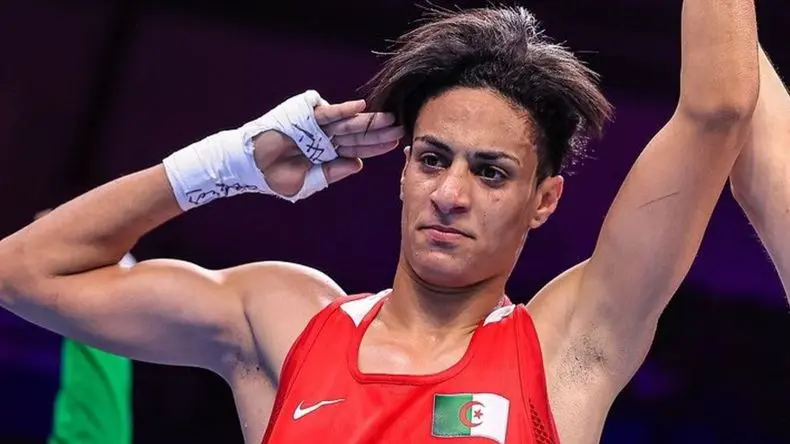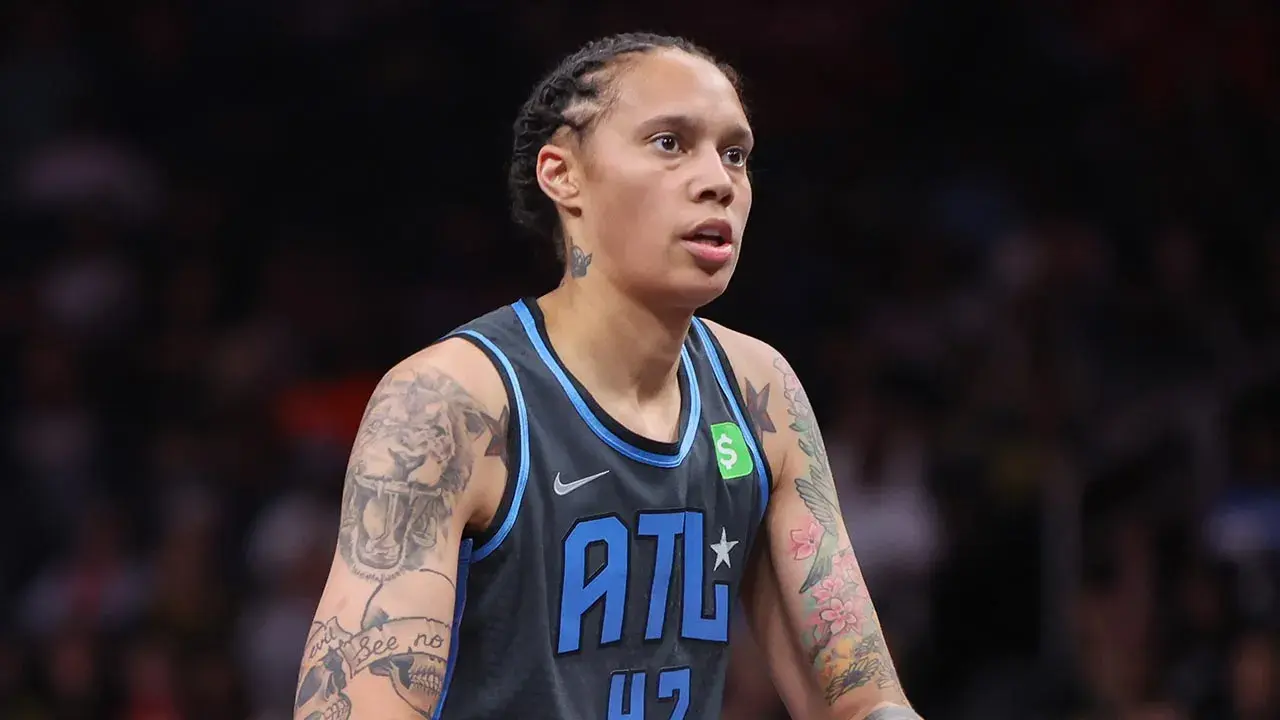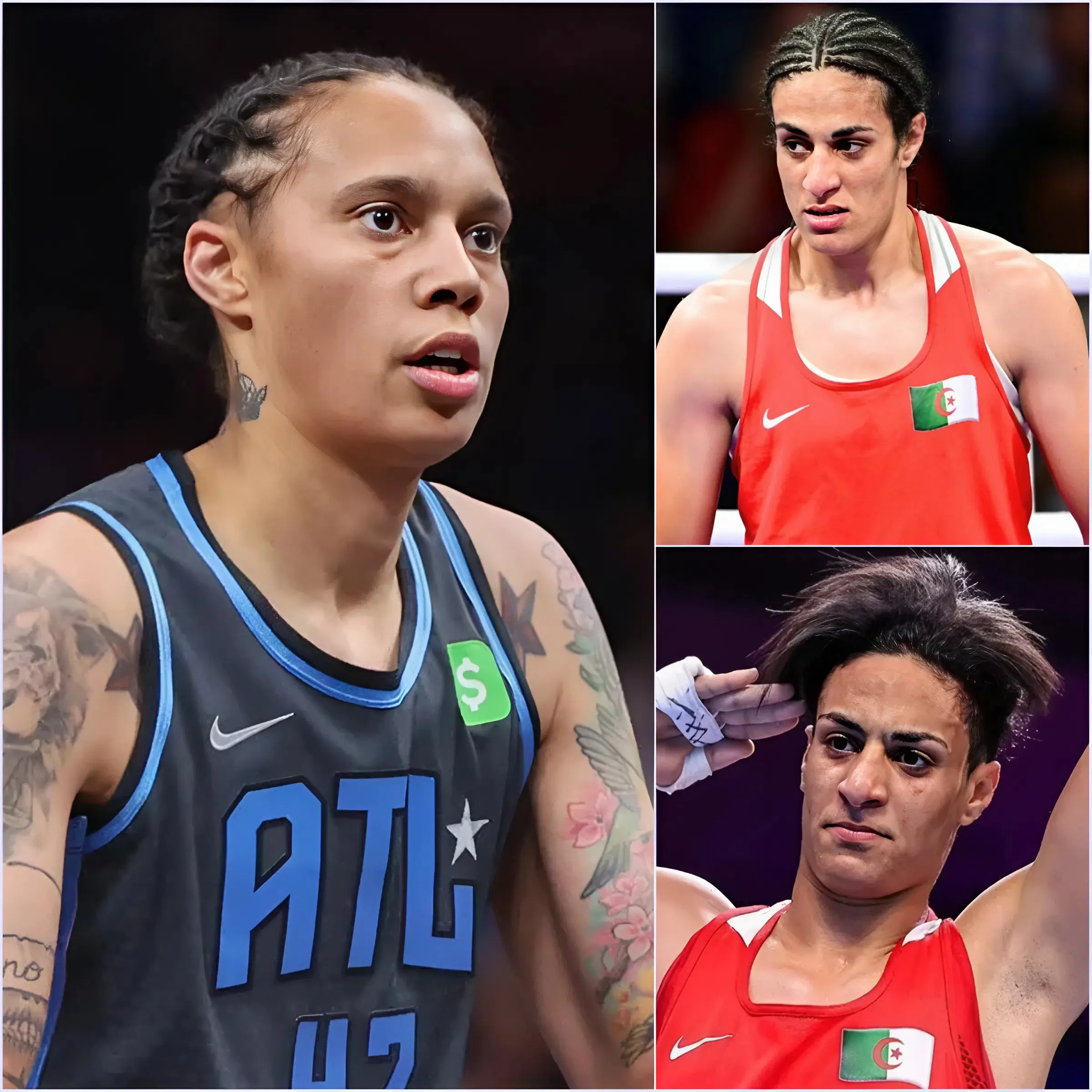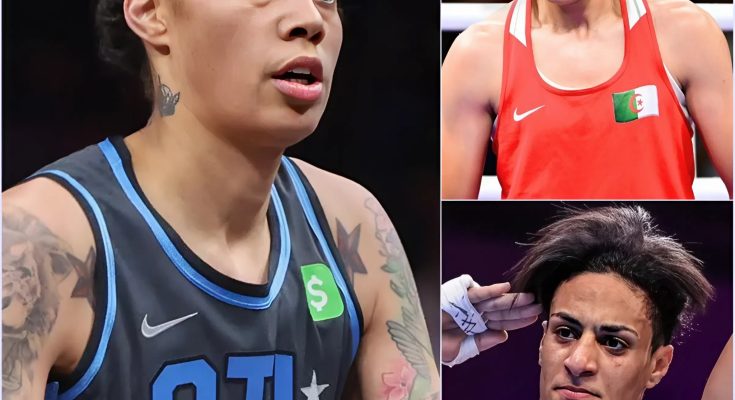Brittney Griner, the WNBA superstar, has once again ignited a firestorm of controversy on social media after making a bold and provocative statement in defense of North African boxer Imane Khelif.

Griner, who is no stranger to speaking out on social justice issues, has now entered the complex and often contentious debate surrounding gender identity and biology.
Her comments, which suggest that possessing XY chromosomes does not necessarily equate to being a man, have sparked widespread outrage, with many questioning her understanding of basic biological science and the social implications of her words.
The statement was made in response to recent criticisms that Khelif, who is a transgender woman, has faced in the world of competitive boxing. Khelif, who transitioned from male to female, has been a subject of intense debate regarding her participation in women’s sports.
Some have argued that Khelif’s biological background, which includes male chromosomes, gives her an unfair advantage over cisgender women in physical competition. This controversy, which is not new in the world of sports, has been met with passionate responses from various individuals and organizations.
However, Griner’s involvement has added an additional layer of intensity to the debate.
During a public interview, Griner responded to the backlash surrounding Khelif’s boxing career, stating that “people are not educated, having XY chromosomes does not mean we are men.” Griner went on to argue that gender is not determined solely by biology, but by a combination of identity, experience, and self-understanding.
The WNBA star further emphasized that society needs to be more open-minded and inclusive in recognizing the full spectrum of gender identities, urging people to move away from traditional, binary definitions of man and woman.
“It’s time for us to evolve and stop relying on outdated and narrow perspectives,” Griner concluded.
While Griner’s stance was undoubtedly intended to be supportive of transgender individuals and to advocate for a more inclusive world, it has set off a heated debate online. The comment quickly went viral, sparking thousands of responses, with many social media users expressing shock and disagreement.
Critics argue that Griner’s position dismisses the role of biology in shaping physical capabilities, particularly in sports where physical advantages such as muscle mass and bone density are significant factors in performance.
Some have accused Griner of misrepresenting biological science and undermining the importance of understanding the distinctions between male and female athletes.
One of the main points of contention is the assertion that having XY chromosomes does not mean one is a man.
Critics, many of whom are biologists or medical professionals, argue that this statement ignores the fact that biological sex, determined by chromosomes, plays a key role in shaping physical traits that typically distinguish men from women.
“It’s essential to acknowledge the difference between sex and gender,” one biologist explained on social media. “While gender identity is a personal and social construct, biological sex still matters in physical activities. To claim otherwise is to ignore fundamental principles of biology.”
On the other hand, supporters of Griner’s viewpoint argue that gender identity is a deeply personal experience that cannot be reduced to chromosomes or anatomy. They suggest that the fight for transgender rights in sports is part of a larger movement towards inclusivity and equality.
Many of these supporters believe that transgender athletes should be able to compete according to their gender identity, rather than be held back by their assigned sex at birth. “Griner is right to challenge these outdated and harmful ideas.
Transgender women deserve to be seen and accepted for who they are, not dismissed based on biological characteristics they cannot control,” one supporter tweeted.
The controversy has also sparked a wider discussion about the role of women’s sports in an era of increasing transgender visibility.
Some argue that including transgender women in female sports could create an unfair advantage, especially for those who transitioned later in life and may have physical traits that give them a competitive edge.
Others, however, argue that the sports world must find ways to level the playing field for all athletes, regardless of gender identity, without resorting to exclusion or discrimination.
These debates have led to calls for better regulation, with some organizations advocating for policies that ensure fair competition while also respecting the rights of transgender athletes.
Griner’s comments have also prompted a broader conversation about education and the need for greater awareness of the complexities of gender and biology. Many people have pointed out that there is still a lack of comprehensive education about these issues, especially in relation to transgender rights.
The conversation around gender identity has evolved rapidly in recent years, and many feel that society is still catching up in terms of understanding the nuances of sex, gender, and how they intersect in different contexts, including sports.
Some believe that this gap in understanding is at the heart of the backlash against Griner’s statement, with people reacting out of discomfort or confusion.
Despite the criticism, Griner has remained steadfast in her defense of Khelif and other transgender athletes. She has used her platform to advocate for inclusivity and to challenge societal norms that she believes limit people’s ability to express themselves freely.
Griner, who has long been an advocate for social justice, continues to push the boundaries of conversation, using her status as a high-profile athlete to raise awareness about the challenges faced by marginalized communities.
In conclusion, Brittney Griner’s recent statement defending Imane Khelif has sparked significant controversy, revealing deep divides in society over issues of gender, biology, and sports.
While some support Griner’s call for greater inclusivity and acceptance of transgender athletes, others argue that biological differences must be acknowledged in discussions of competitive fairness.
As the debate continues to unfold, it is clear that the conversation surrounding gender identity in sports is far from settled, and individuals like Griner will likely continue to play a pivotal role in shaping the discourse around these complex and sensitive issues.



